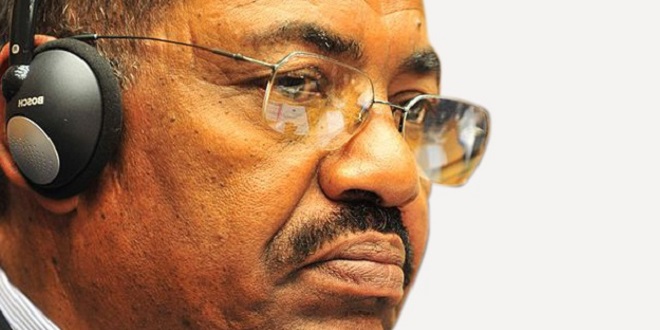
Khartoum, Sudan | AFP | Ousted Sudanese leader Omar al-Bashir is to appear in court next week to face charges of corruption and illegal possession of foreign currency, the acting prosecutor general announced on Saturday.
The announcement came more than two months after the military overthrew Bashir following mass nationwide protests against his 30-year iron-fisted rule.
Bashir “will appear in court next week following charges of corruption and possessing foreign currency”, Al-Waleed Sayyed Ahmed told reporters, without specifying the day.
On Thursday, an unnamed official quoted by the official SUNA news agency said Bashir was facing charges including “possessing foreign funds, acquiring suspected and illegal wealth, and ordering the (state of) emergency”.
In April, Sudan’s army ruler General Abdel Fattah al-Burhan said more than $113 million worth of cash in three currencies had been seized from Bashir’s residence.
He said a team of police, army and security agents found seven million euros ($7.8 million), $350,000 and five billion Sudanese pounds ($105 million).
When he imposed the state of emergency, Bashir issued a decree making it illegal to possess more than 5,000 dollars in foreign currency.
Bashir, who was toppled on April 11 following months of protests and is currently being held in the capital’s Kober prison, swept to power in an Islamist-backed coup in 1989.
Sudan suffered high rates of corruption during his rule, ranking 172 out of 180 countries in Transparency International’s 2018 Corruption Perceptions Index.
Last month, Ahmed ordered Bashir questioned over money-laundering and “financing terrorism”.
In an effort to quell protests that erupted against his rule in December, Bashir imposed a nationwide state of emergency on February 22.
– Charges against Bashir aides –
In May, the prosecutor general said Bashir had been charged over the killings of protesters during the anti-regime demonstrations, which eventually led to his ouster.
Ahmed also said on Saturday that 41 other charges against “symbols of the ousted regime” were under investigation.
He did not name the others accused but said most of the charges were over the “possession of land”.
Protests against Bashir’s rule initially erupted on December 19 after his then government tripled the price of bread.
He was ousted by the army after thousands of demonstrators launched a sit-in outside the military headquarters in central Khartoum from April 6.
But army generals have resisted protesters’ demands to hand power to a civilian administration.
The protesters kept up their sit-in even as protest leaders held several rounds of talks with the generals on installing civilian rule.
But talks broke down in May over who would lead a new overall governing body — a civilian or soldier.
And on June 3, armed men in military fatigues launched a crackdown on demonstrators camped outside the army complex that left dozens of people dead and hundreds wounded.
Protesters and witnesses accuse a feared paramilitary group, the Rapid Support Forces, of carrying out the assault on demonstrators.
General Shamseddine Kabbashi, spokesman of the ruling military council, has said the findings of a probe into the deaths would be released on Saturday.
– RSF image ‘distorted –
RSF commander General Mohamed Hamdan Dagalo defended his force at a rally Saturday in a village on the outskirts of Khartoum.
“Our image as Rapid Support Forces has been distorted,” said Dagalo, who is also the deputy chief of the ruling military council.
“But we will not talk about it (the June 3 crackdown) until the findings of the report come out,” he said as a crowd of supporters cheered.
On Thursday, the ruling military council acknowledged the dispersal of the sit-in.
Kabbashi has said the initial plan was to clear an area called Colombia near the sit-in but then “we regret what happened”.
Doctors linked to the protest movement say about 120 people have been killed in Khartoum since the crackdown, while the health ministry says 61 people died nationwide on June 3.
 The Independent Uganda: You get the Truth we Pay the Price
The Independent Uganda: You get the Truth we Pay the Price



